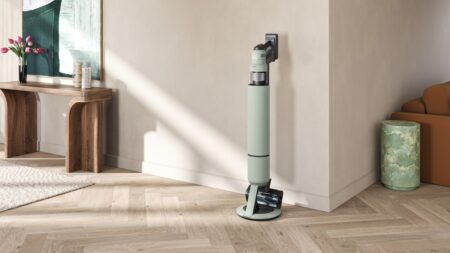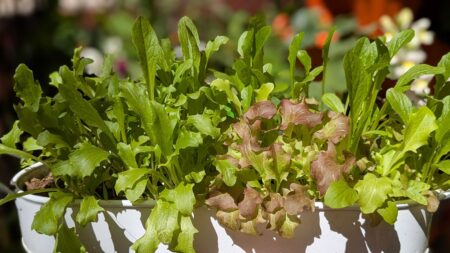Most homeowners rely on air conditioners to keep homes cool and comfortable during the summer. But what if your AC unit is not performing as efficiently as you think? Several factors can lower an air conditioner’s performance, leading to higher energy bills and inconsistent cooling. Understanding these issues is crucial for optimizing performance and ensuring your AC system operates at its best, especially when temperatures soar.
The efficiency of an air conditioner can be affected by a range of factors such as improper installation, lack of maintenance, outdated technology, and poor installation. Even minor problems, like dirty filters or obstructed airflow, can significantly reduce the system’s ability to cool your home effectively. By identifying and addressing these common issues, you can improve your AC’s efficiency, reduce energy consumption, and extend the lifespan of your unit, all while enjoying a cooler, more comfortable home.
This article highlights the common reasons air conditioners underperform. It explores the factors that can hinder your AC’s ability to keep you cool and comfortable and, most importantly, provides practical tips to help you maximize its efficiency.
Understanding Air Conditioner Efficiency
The efficiency of an air conditioner is typically measured by its Seasonal Energy Efficiency Ratio (SEER). The higher the SEER rating, the more efficient the unit, and the less energy it will consume to keep your home comfortable. Most modern AC units usually have SEER ratings ranging between 13 to 25.
A higher SEER rating guarantees lower energy bills. If your current AC unit has a low SEER rating, it consumes more energy leading to a surge in electricity bills because of its poor performance. It is therefore very crucial to inspect the air conditioner and possibly repair or upgrade the old system if it not working in the right order.
It must be kept in mind that even the most efficient AC unit can underperform if it is not properly installed, maintained, or sized for your home. That is where a reliable air conditioning service comes in. Experienced technicians can assess your home’s cooling needs, recommend the right unit size, and ensure proper installation and maintenance to maximize efficiency.
Noticeable Signs of Inefficient Air Conditioner
Every malfunctioning air conditioner will display signs that you must notice for timely intervention to keep it functioning properly. Here are some common observances that indicate poor performance:
Warm Air: If warm air is coming out of AC vents, first check the thermostat whether it is switched to cooling mode. When you find the thermostat working fine then you might have issues with AC airflow or its compressor.
Poor Airflow: The airflow from vents gets weak or insufficient owing to various issues. It is mainly due to blockage in ductwork, air-filter or might be a result of a broken motor.
Frequent Cycles: When you notice that the air conditioner is undergoing too many cooling cycles, it is a big sign to get it fixed by professionals. If repair doesn’t work, consider buying a new one.
High Humidity: Every AC unit is designed to moderate humidity levels automatically. But if you experience high humidity levels then address this issue immediately.
Water Leakage: This is one of the most common signs of AC’s bad health. Water leaks can cause damage to both your appliance and home so get expert help as soon as you detect it.
Unpleasant Odors: Any bad smell coming from the air conditioning can be discomforting and quickly noticeable. Proper cleaning is required to remove such an issue. UV lamps can help eliminate any germs to provide fresh and hygienic air to your indoors.
Loud Noises: All modern ACs operate at low-level noise which doesn’t trouble human ears. But a faulty system might display loud unusual noises that might be a signal of a big problem.
Rising Electricity Bills: A sudden increase in your power bills that looks irregular and unexpected, especially during summer, indicates that your air conditioning is not functioning at its best.
Factors Affecting Air Conditioner Efficiency
Several factors can contribute to a decline in your air conditioner’s efficiency. Here are some of the most common culprits:
Improper Sizing
An oversized unit will cool your space too quickly, leading to frequent on-and-off cycles that waste energy and strain the system. This can be particularly problematic in smaller spaces, such as tiny houses, where rapid temperature fluctuations can be uncomfortable. On the contrary, an undersized unit will run constantly, struggling to reach the desired temperature and consuming excess energy. To ensure your AC operates efficiently and effectively, it is advisable to have it professionally assessed and sized for your specific needs.
Lack of Proper Upkeep
The air conditioners must undergo regular maintenance; ideally before the mercury rises when they are required to maintain a comfortable indoor temperature. Neglecting essential tasks like cleaning or replacing air filters, checking for refrigerant leaks, and cleaning condenser coils can lead to problems. These issues can restrict airflow, impede heat exchange, and reduce cooling capacity, ultimately leading to higher energy bills and potential system breakdowns.
Temperature Settings
Your thermostat acts as the command center for your AC, dictating how hard it works. Setting it excessively low leads to heavy energy consumption without getting it any cooler. Instead, find a comfortable temperature and stick to it. Remember, each degree lower on the thermostat can significantly increase the energy intake of your air conditioner. Consider a programmable thermostat to automatically adjust temperatures when you’re away or asleep, maximizing comfort and savings.
Ductwork Issues
Ductwork refers to a system of tubes that transport air throughout the building. Potential leaks or gaps in the ductwork can cause your air conditioner to waste cool air and energy. Regular inspections and proper sealing of your ductwork are key to ensuring your AC’s efforts aren’t wasted.
Age of the System
Air conditioners, like any appliance, don’t last forever. As they age, their efficiency naturally declines, even with diligent upkeep. So if you have been using the same model for more than a decade or even longer it might be the time to think about an upgrade. Newer models often come with higher SEER ratings and innovative features, translating to significant improvements in both energy efficiency and overall comfort.
By understanding these factors, you can unlock the full potential of your AC unit and enjoy a cool, comfortable home with energy savings.
Also Read: 10 Simple Air Conditioner Maintenance Tips You Need to Kno
How To Improve AC Efficiency
Here are some practical measures you can take to boost your AC unit’s performance and efficiency:
Prioritize Regular Maintenance
Regular air conditioner maintenance can prevent major issues and keep your system running smoothly. Dirty air filters are a common culprit behind inefficiency, so aim to replace them every 1-3 months, especially during hot summer days. Consider scheduling professional tune-ups at least once a year. A qualified technician can perform in-depth cleaning, check for refrigerant leaks, and catch potential problems early on. Don’t forget the outdoor unit – keeping it free of debris and foliage ensures proper airflow and optimal performance.

Optimize Thermostat Settings
Your thermostat is the key to controlling your AC’s energy use. Don’t turn it down to the lowest setting to keep the room cool but rather find a comfortable temperature and let your cooling appliance do its job efficiently. Every degree you lower can lead to a noticeable spike in your energy bill.
Address Air Leaks
Air leaks can lead to the loss of precious cool air and force your air conditioner to work harder. Inspect your windows and doors for gaps or cracks. If you find any, seal them using weatherstripping or caulk. Do not forget to inspect the ductwork and consider having a professional inspect your ducts and seal any leaks to ensure that cool air stays where it belongs.
Enhance Insulation
Insulation keeps cool air inside and sweltering heat outside. A well-insulated attic prevents heat from infiltrating your living spaces while adding insulation to exterior walls that can significantly boost your home’s overall energy efficiency, especially in older homes.
Consider Upgrading Your Unit
If your air conditioner is aging, inefficient, or constantly needing repairs, upgrading to a newer model can offer significant benefits, including improved energy efficiency, enhanced comfort features, and long-term cost savings.
By implementing these practical tips, you can significantly improve your air conditioner’s efficiency, reduce energy consumption, and create a more comfortable living environment.
Final Thoughts
An efficient air conditioner creates a sustainable and enjoyable living environment. By taking proactive steps to optimize your AC’s performance, you’re reducing your carbon footprint and investing in your peace of mind. So, embrace these tips and let your air conditioner work smarter, not harder, to keep you cool all summer long.
Follow Homecrux on Google News!




